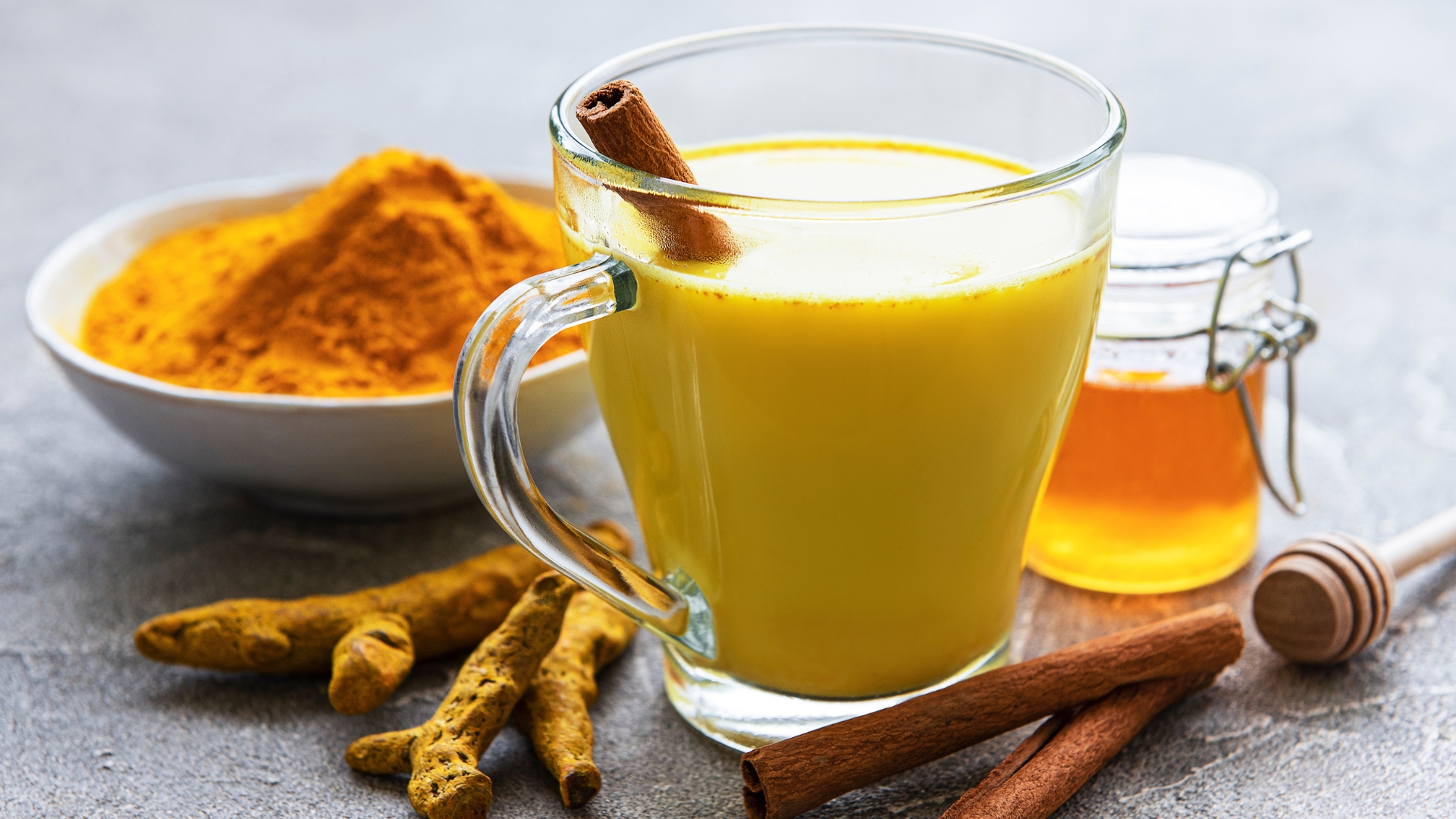
Turmeric milk, also known as “Haldi Doodh” or “Golden Milk,” is a traditional Indian drink made by mixing turmeric powder into warm milk. Often enhanced with black pepper, cinnamon, or ginger, it's been used for centuries in Ayurvedic and natural healing systems for its anti-inflammatory and immunity-boosting properties.
Table of Contents
Nutritional Value of Turmeric Milk
The nutrients in turmeric milk depend on the quantity of turmeric and type of milk used. Here's a basic breakdown per 1 cup:
-
Calories: ~120-150
-
Protein: ~8g (cow's milk)
-
Fat: ~4-7g
-
Curcumin (active compound in turmeric): ~200-400 mg
-
Calcium, Vitamin D, B12 (if dairy or fortified plant milk used)
-
Antioxidants: Curcumin, polyphenols
-
Other: Black pepper increases curcumin absorption by up to 2000%
Top Health Benefits of Turmeric Milk
1. Boosts Immunity
Turmeric has antimicrobial and antioxidant properties that help fight infections and improve immune response.
2. Reduces Inflammation and Joint Pain
Curcumin is known for its strong anti-inflammatory effects, helping reduce symptoms of arthritis and other inflammatory conditions.
3. Improves Digestion
Turmeric stimulates bile production, improving fat digestion and preventing bloating.
4. Enhances Skin Health
Regular consumption helps detoxify the body and improve skin clarity due to its antioxidant properties.
5. Supports Better Sleep
Drinking turmeric milk at night can calm the body and support the release of melatonin, a sleep-regulating hormone.
6. Fights Cold and Cough
Warm haldi doodh is often used as a natural remedy for sore throat, congestion, and cold symptoms.
7. Helps in Weight Loss
Turmeric boosts metabolism and may help in managing weight when consumed regularly with a balanced diet.
8. Heart Health
The anti-inflammatory and antioxidant action supports blood circulation and reduces risk factors for heart disease.
Possible Side Effects of Turmeric Milk
While turmeric milk is generally safe for most people, excessive consumption may cause:
-
Stomach upset or acid reflux
-
Allergic reactions in some individuals
-
Iron absorption issues (when taken in high doses)
-
Gallbladder issues (turmeric can trigger symptoms in those with gallstones)
-
Drug interactions – it may interact with blood thinners or diabetes medications
Who Should Avoid Turmeric Milk?
-
People with gallbladder problems or kidney stones
-
Those on blood thinning medication
-
Pregnant women (in large doses – consult a doctor)
-
People with iron deficiency anemia (turmeric may inhibit iron absorption)
How to Make Turmeric Milk
Simple Recipe:
Ingredients:
-
1 cup milk (dairy or plant-based)
-
½ tsp turmeric powder
-
A pinch of black pepper
-
Optional: ½ tsp honey, cinnamon, or ginger
Method:
-
Warm the milk (do not boil).
-
Add turmeric and stir well.
-
Mix in black pepper and other spices.
-
Let it simmer for 3–5 minutes.
-
Strain (if needed), sweeten with honey, and enjoy.
Best Time to Drink Turmeric Milk
-
Nighttime (before bed): Helps with sleep, muscle repair, and detox.
-
Morning (empty stomach): For digestion and metabolism support.
Avoid drinking more than 1 cup per day for optimal results.
Turmeric milk is a powerful blend of traditional wisdom and modern health science. Packed with anti-inflammatory, antioxidant, and healing properties, it supports immunity, digestion, and overall wellness. However, like all remedies, it must be used in moderation. If you have medical conditions, consult your doctor before regular use. Whether for daily wellness or seasonal immunity, golden milk can be a simple, soothing addition to your health routine.


